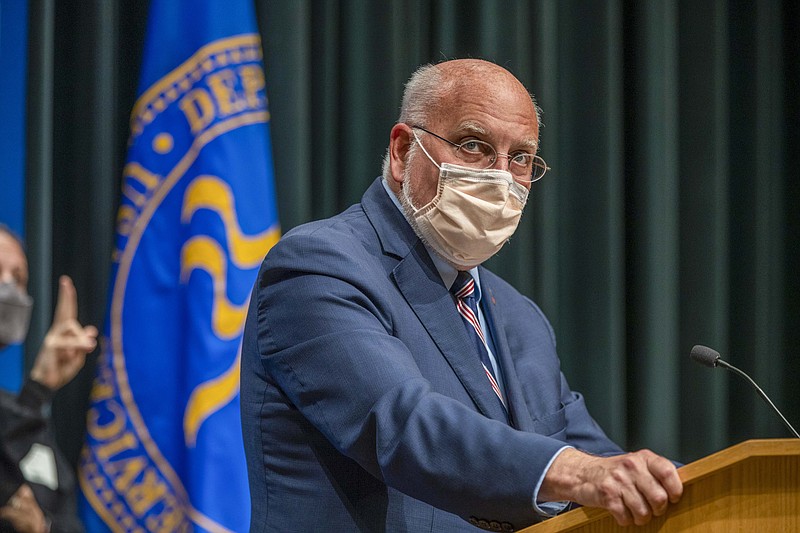ATLANTA (AP) - COVID-19 infections are rising more rapidly in Georgia, in line with a national trend of increasing cases.
The broadest measure of COVID-19 cases, which includes rapid antigen tests as well as the more precise genetic tests, shows the number of confirmed and probable cases was 18% higher in the week that ended Friday compared to the week before, according to a report issued Monday by the Georgia Department of Public Health.
The state recorded 10,086 genetic positives and 2,564 antigen positives last week, tipping Georgia back above 100 weekly cases per 100,000 people, one measure of rapid spread.
Georgia still remains far off its July peaks, when it was averaging 3,700 cases per day, worst in the nation at the time. Because the respiratory illness is now spreading so rapidly in other regions, Georgia ranks only 34th among the states, according to numbers tracked by The Associated Press. Many more cases, per capita, are being recorded in some Midwestern and Western states.
The share of positive genetic tests has risen above 7% statewide in Georgia from a low of 5.5% as late as Oct. 15, suggesting more rapid spread in communities. Experts say that if more than 5% of tests are coming back positive, it suggests that too few tests are being done and many infections may be going undetected.
Public Health Commissioner Kathleen Toomey said earlier this month that the state was planning to include positive rapid antigen tests in its daily report, but has not yet done so. Many other states count those tests no differently than genetic tests, but Georgia officials said they're worried about the higher rate of false results on the antigen tests.
Despite those concerns, the state publishes antigen numbers in once-weekly county-level reports that are issued on Mondays. Department of Public Health spokesperson Nancy Nydam wrote Monday in an email that "we continue to work toward posting the antigen tests on the DPH dashboard," but gave no further explanation about why the move hasn't taken place yet.
But even just counting genetic tests, the rise in cases in Georgia is increasingly clear. The state's seven-day daily average of positive tests is up 30% since hitting a low on Oct. 8, according to AP numbers. The seven-day average of hospitalizations is up 7% since hitting a low on Oct. 12.
Deaths, which usually lag behind hospitalizations, have mounted more slowly in recent days. Georgia has recorded 7,827 confirmed deaths from COVID-19 and more than 326,000 cases confirmed through genetic tests. While most people who contract the coronavirus recover after suffering only mild to moderate symptoms, it can be deadly for older patients and those with other health problems.
Nydam again urged people to wear masks, maintain social distance, wash hands and get a flu shot, but said "the prevention messages are the same" when asked if the state was undertaking any new initiatives to slow the virus' spread.
"We are beginning to see an uptick in COVID testing," Nydam wrote in an email. "Testing and contact tracing can help prevent further spread of COVID-19, but we need people to participate in the contact tracing process."
The numbers are rising as millions of Georgians cast their votes for president and federal and state offices. Democrats have heavily criticized President Donald Trump and Gov. Brian Kemp, both Republicans, for their actions during the pandemic. Kemp has said he's striking the right balance between health and making sure restrictions don't choke off economic growth.
Public health officials count 39 high transmission counties, with a group in northwest Georgia that includes the Carrollton, Cartersville, Rome and Dalton areas, parts of rural northeast Georgia north of Athens, and a belt running east to west south of Dublin.
Of the state's 159 counties, 126 counties recorded more than 100 cases per 100,000 residents over the past 14 days.
